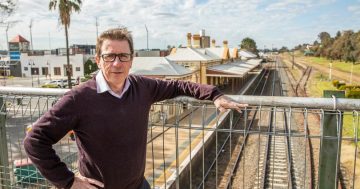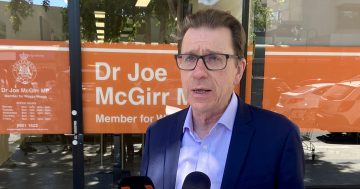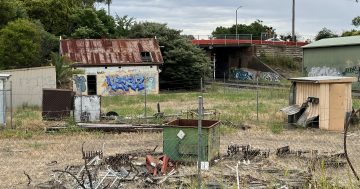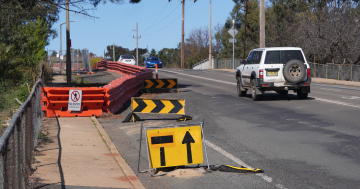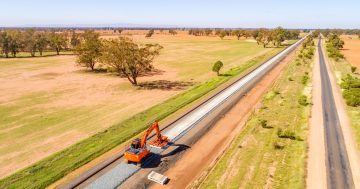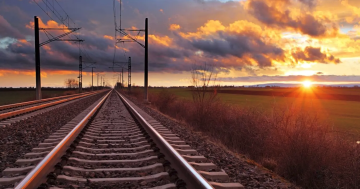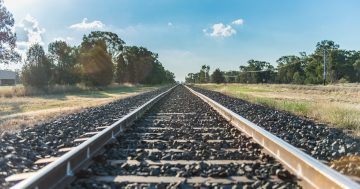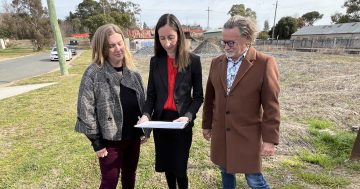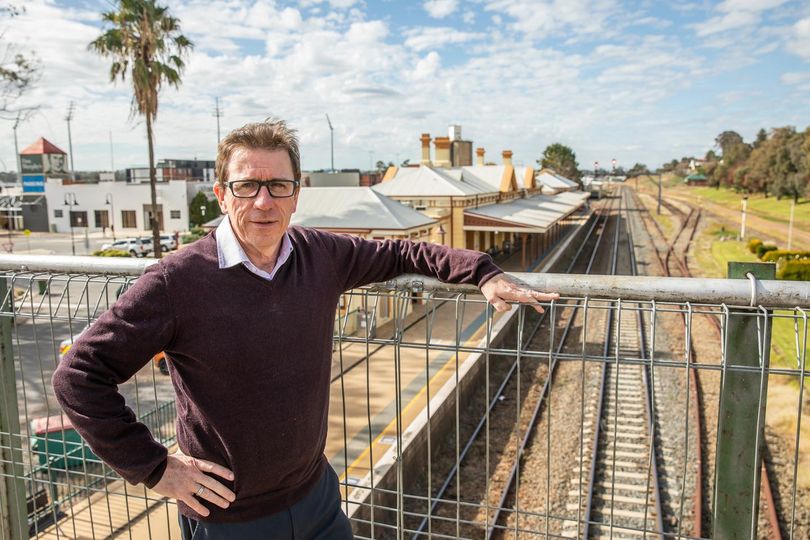
Dr Joe McGirr has written to the Federal Infrastructure Minister urging an Inland Rail bypass of Wagga be added to the proposal as it is assessed for planning approval. Photo: Supplied.
Member for Wagga Wagga Dr Joe McGirr is backing calls for a rail bypass to be considered for the Albury to Illabo section of the Inland Rail project.
Community groups and Wagga City Council have raised concerns over the impact of upgrading the existing rail line to bring double-stacked freight trains through the centre of the city.
Dr McGirr remains supportive of the Inland Rail megaproject and the economic benefits it will bring to the region, but said he was mindful of community concerns that it would divide the city and increase noise and vibration.
“I requested the State Planning Minister, Paul Scully, to make planning for a bypass – or identifying easements for a bypass in the future – a condition of planning approval,” Dr McGirr said.
“I have now been advised by Mr Scully that his department cannot include a bypass in its assessment because it has not been included in the ARTC’s current plan.
“As a result, I’ve asked the Federal Government to change the proposal.”
Dr McGirr has written to Federal Infrastructure Minister Catherine King asking that plans for a bypass be added to the proposal.
“I’ve taken this up with the Minister because I felt as part of that process the State Government should require planning for a bypass as a condition of approval.”
If Dr McGirr’s request is accepted, the NSW Government would have the option of requiring that planning for a bypass be conditional upon the project getting approval to proceed.
Dr McGirr has followed the letter to Minister King with another letter to Mr Scully, asking him to support the change to the ARTC’s proposal and to ensure key mitigation factors are also made conditions of approval.
Those factors include strict limits on freight train numbers (no more than 14 per day) and train lengths (no longer than 1.8 km) if grade separation cannot be provided at the Bourke Street level crossing, having appropriate compensation and mitigation for home and business owners who will suffer significant negative impacts from Inland Rail and having a requirement to minimise traffic disruption caused by the raising of the Edmondson Street bridge and other work during construction.
“Our community supports Inland Rail because of the economic opportunities it will deliver to the region and the nation, but it should not be allowed to divide our city or cause unacceptable noise, vibration and traffic congestion problems,” Dr McGirr said.
“By requesting a bypass as a condition of approval and identifying potential easements, I hope to provide a long-term guarantee that Wagga will get the benefits of Inland Rail without risk to its economy or liveability.
“In the shorter term, my mitigation requests are designed to minimise the impact on the city between the start of construction and the development of a bypass so that this nation-building project delivers benefits to the city constructively and harmoniously.”
While a bypass would considerably increase costs to an already over-budget project, Dr McGirr does not believe Wagga risks losing the project.
“With the work done on this over the number of years, I don’t think it is a risk,” he said.
“What is a risk will be the traffic disruption, the rail line dividing the city, affect our livability as a community as those train numbers increase.
“Inland rail can put in place mitigation options for noise and vibration for a relatively small increase in trains. But if those numbers increase and the length of the trains increases, what is our option? If we want to do a bypass we need to start that planning sooner rather than later.”
Meanwhile, Inland Rail CEO Nick Miller said the project was on track to deliver strong progress in 2024.
He said environmental approvals in NSW were progressing well, with the State Government in the final stages of the approvals process for the Albury to Illabo and Illabo to Stockinbingal sections.
“Like all major projects, Inland Rail has had its share of setbacks and challenges … it is not a ‘stalled project’, we are making strong progress on the ground; two sections have already been completed in NSW, work is well underway on a third, and we should receive two more major environmental approvals in the coming months.”
Mr Miller said Inland Rail was about opening up new opportunities for the critical primary producers in rural and regional Australia, allowing them to get their products to domestic and international markets quickly and cost effectively.







